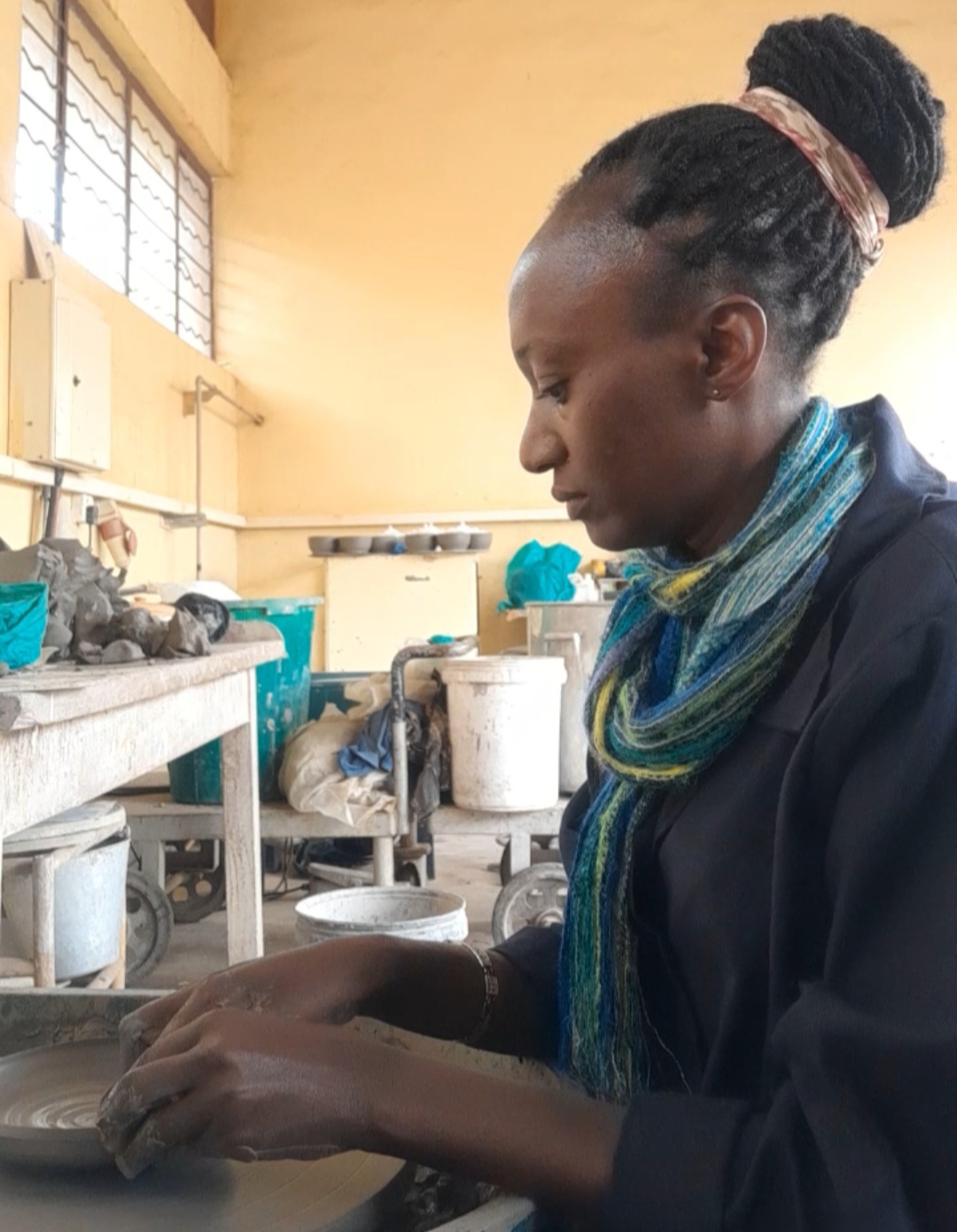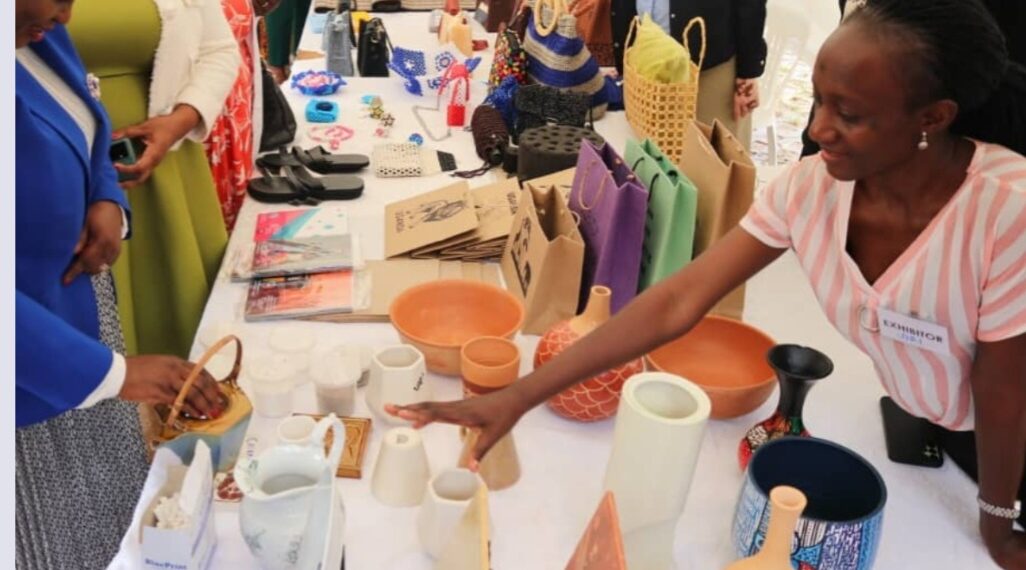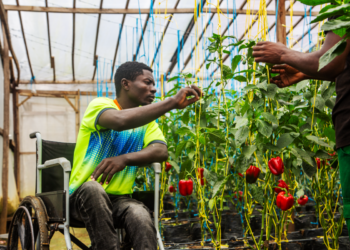 By Roselyne Akatukunda
By Roselyne Akatukunda
Uganda’s ceramics sector holds immense untapped potential to contribute to national development, job creation, and cultural preservation. Historically rooted in indigenous craftsmanship and local resource use, ceramics in Uganda have long served both functional and aesthetic roles, ranging from domestic pottery and construction materials to decorative art pieces and ritual items. However, despite this rich heritage, the sector has suffered from decades of neglect, under-investment, technological stagnation, and a lack of structured market systems.
In light of increasing demand for sustainable housing materials, handmade crafts, and industrial ceramics globally, Uganda stands at a pivotal moment. There is an urgent need for coordinated action by the government, investors, academia, and the general public to revitalise the ceramics sector as a driver of socio-economic transformation.
The Current State of Uganda’s Ceramics Industry
Uganda’s ceramics industry today remains largely informal and fragmented. It is primarily dominated by small-scale artisans who produce household pots, tiles, bricks, and clay stoves using traditional methods. While these products are functional, they often lack the consistency, durability, and aesthetic refinement required to compete in modern domestic and international markets.
Several challenges constrain the growth of the industry:
a) Lack of Modern Technology
Most ceramic producers rely on traditional kilns and manual shaping methods, which are time-consuming, energy-inefficient, and produce inconsistent results.
b) Limited Skills and Training
There is a shortage of trained ceramic technologists, designers, and engineers. Vocational institutions that once offered training in ceramics have either closed or shifted focus due to a lack of funding and enrollment.
c) Poor Access to Finance
Many small-scale artisans and entrepreneurs lack access to affordable financing needed to modernise operations or scale up production.
d) Inadequate Raw Material Mapping and Exploitation
Uganda has abundant clay deposits and other mineral resources essential for ceramics, but limited geological data and extraction infrastructure hinder their optimal use.
e) Weak Policy Framework
There is minimal government policy support targeting ceramics as a priority industry. Unlike other sectors like agriculture or tourism, ceramics lacks a dedicated national strategy or incentives.
Why Revitalising the Ceramics Sector Matters
Revitalising Uganda’s ceramics industry is not merely an artistic or cultural endeavour; it is a strategic economic opportunity. The benefits of investment in this sector are multifaceted:
- Job Creation and Skills Development
Ceramics production is labour-intensive and can employ thousands, especially youth and women. Revamping the sector would open up employment opportunities across various value chain segments: from clay extraction and processing, design, and production to marketing and export. Additionally, training programs in ceramic technology and entrepreneurship would equip Ugandans with marketable skills.
- Support for the Construction Industry
With the growing demand for affordable housing and infrastructure in Uganda, there is an increasing need for local, cost-effective construction materials such as bricks, tiles, pipes, and sanitary ware. Developing local ceramic production would reduce dependence on imports and lower construction costs while stimulating industrial growth.
- Preservation of Cultural Heritage and Promotion of Tourism
Traditional pottery reflects the identity and history of Ugandan communities. Reviving ceramic arts not only preserves this intangible heritage but can also enrich the tourism sector. Tourist-oriented pottery centres, museums, and craft markets can generate income and cultural pride.
- Import Substitution and Export Potential
Uganda imports significant volumes of ceramic tiles, sanitary ware, and tableware. By investing in local production, the country could save foreign exchange and boost its trade balance. Furthermore, high-quality Ugandan ceramics could find export markets in the East African region, Europe, and beyond, especially with the growing global appetite for authentic, handmade crafts. 
Strategic Areas for National Investment
To realise these benefits, national investment, both public and private, must focus on strategic areas:
- Technology and Infrastructure Development
The establishment of modern ceramic manufacturing parks, complete with energy-efficient kilns, quality control labs, and shared equipment centres, is critical. Such infrastructure would enable mass production and improve the quality of ceramic products to meet market standards.
- Education and Research
Ugandan universities and vocational institutions should be supported to introduce or reinstate courses in ceramic design, material science, and industrial processing. Collaboration with international institutions can enhance research and innovation in ceramic applications.
- Access to Finance and Markets
Government-backed financial schemes, such as low-interest loans or startup grants for ceramic entrepreneurs, can help catalyse growth. Additionally, national trade fairs, online marketplaces, and export facilitation can help artisans access wider markets.
- Policy and Regulation
A national ceramics development policy is needed to guide investment, environmental sustainability, and standards enforcement. This includes mapping of clay deposits, regulating mining practices, and establishing guidelines for artisanal and industrial production.
The Role of the Public and Private Sectors
Revitalising the ceramics industry cannot be a government-only initiative. It requires active participation from the private sector, civil society, and the public at large.
- Investors
Local and foreign investors should be incentivised to establish ceramic factories, supply chains, and retail networks. Joint ventures with international ceramic firms can bring in technology and market linkages.
- Consumers
Ugandans can support the industry by choosing to buy locally made ceramic products. Public awareness campaigns can emphasise the quality, cultural value, and economic impact of buying Ugandan ceramics.
- Artisans and Cooperatives
Potters and craftspeople should organise into cooperatives or associations to pool resources, share knowledge, and strengthen their bargaining power.
- Media and Creative Industry
Artists, designers, and influencers can elevate the status of Ugandan ceramics by incorporating them into fashion, décor, film, and exhibitions.
Success Stories and Regional Lessons
Countries like Kenya, Morocco, and Tunisia have made significant strides in ceramics development by investing in skills training, artisan clusters, and export promotion (Armstrong, C., & De Beer, J, 2021). Uganda can learn from such examples by tailoring best practices to local contexts.
In Uganda itself, some initiatives like the Ceramics section of Uganda Industrial Research Institute, the Ceramics department at Uganda Technical College Bushenyi, Makerere University’s Department of Industrial Art and the Rubona Pottery Centre in Fort Portal demonstrate the sector’s promise when given adequate support. Scaling such models across the country could ignite national transformation.
A Call to Action
Uganda’s ceramics sector is a sleeping giant. Its revitalisation can transform lives, generate wealth, and preserve heritage. This journey, however, requires deliberate and sustained commitment. The government must prioritise the sector through policy, funding, and institutional support. Investors should recognise its long-term value and potential returns. The Ugandan public must embrace, celebrate, and support local ceramic products.
It is time to move ceramics from the margins to the mainstream of Uganda’s industrial and cultural renaissance. The clay is ready; what we need now are the hands, hearts, and minds to mould it into a symbol of national pride and prosperity.
Ms Roselyne Akatukunda is a research technician at the Uganda Industrial Research Institute (UIRI).










